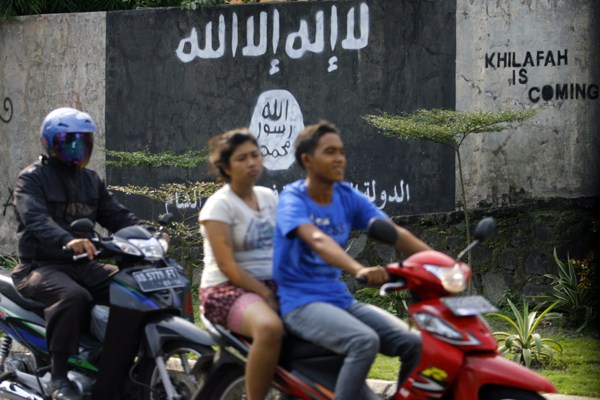After a steady decline in Islamist extremism in Southeast Asia over the past decade, during which the region shed its post-9/11 image as a possible second front for al-Qaida, the rise of the self-declared Islamic State (IS) has some governments fearing a new threat. In response, Malaysia, Indonesia and Singapore in particular are acting individually, bilaterally and regionally to stem recruitment, radicalization and the flow of foreign fighters.
Over 500 young Southeast Asians are returning home after fighting for IS, as many did during the Afghan mujahedeen’s jihad against the Soviet occupation of Afghanistan in the 1980s. Given that over 40 percent of the population of the Association of Southeast Asian Nations (ASEAN) is Muslim, countries with sizable Muslim populations are worried that some of their citizens will grow to sympathize with IS and perhaps carry out attacks at home. The Philippines has expressed concerns about local militant groups pledging allegiance to IS, while Thailand, with its own local Malay-Muslim southern insurgency still raging, is closely monitoring the situation.
At the individual level, Southeast Asian states have already been undertaking efforts to address the IS threat. Malaysia has intensified its crackdown on IS in recent months, arresting dozens of supporters ranging from navy and air force personnel to university students; disrupting several terror plots, including one during the run-up to the recent ASEAN summit in Kuala Lumpur; and passing sweeping anti-terror laws to widen the government’s powers. Following a series of arrests in neighboring Indonesia, the world’s largest Muslim-majority country, the Indonesian military launched a major, six-month long counterterrorism operation on the island of Sulawesi this month. The government has also been looking at ways to get around major constraints to its approach, including current laws that do not permit authorities to charge or detain IS supporters who leave to fight for the movement and a notoriously lax prison system that has previously allowed detained terrorists to continue some of their activities while behind bars.

